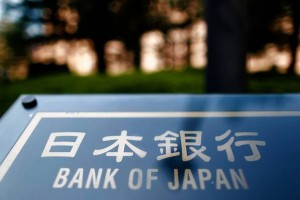Negative Interest Rates Fail to Stabilize Japan
 A recent move by Bank of Japan Governor Haruhiko Kuroda to impose negative interest rates on Japanese depositors has been criticized as a failed strategy for stimulus. Recent economic developments have caused market conditions in Japan to deteriorate even further, and the country’s stimulus system has failed to produce long-term results.
A recent move by Bank of Japan Governor Haruhiko Kuroda to impose negative interest rates on Japanese depositors has been criticized as a failed strategy for stimulus. Recent economic developments have caused market conditions in Japan to deteriorate even further, and the country’s stimulus system has failed to produce long-term results.
On Friday, Japan’s NIKKEI 225 stock index suffered a loss of 4.8 percent while the Japanese yen climbed to reach its strongest point in more than a year against the USD. While the stronger currency would seem like a good economic indicator under other circumstances, it is precisely the opposite of what the Bank of Japan had intended. The implementation of negative interest rates is meant to weaken a country’s currency against those of other nations, thus allowing it to cheaply export its products. A stronger yen, instead, makes it less likely that foreign importers will do business with Japan.
This is not the first challenge that the Japanese economy has faced in recent months. The country’s overall economic stimulus program, popularly deemed “Abenomics” for its originator and largest proponent, Prime Minister Shinzo Abe, has failed to bring the Japanese economy back to the heights it once enjoyed as one of the most productive economies in the world. Much of the country’s economic difficulty stems from its population crisis, which has led to a comparatively small workforce working to pay for benefits for Japanese retirees. A series of attempts to stimulate the economy have produced short-term spikes, but have generally been seen as ineffective in creating lasting growth. However, Mr. Kuroda has been insistent that the programs are working and that the Bank of Japan will continue to do all that is necessary to revive the country’s economic fortunes. “If we judge that existing measures in the toolkit are not enough to achieve the goal, what we have to do is to devise new tools, rather than give up the goal,” Mr. Kuroda said in a recent interview, speaking to the effectiveness of the Bank of Japan’s recent economic interventions.
Meanwhile, currency investors are betting against the bank of Japan and buying into the yen against the dollar. Currency bank Barclays has even stated that the yen is among the more attractive positions in the currency market at the moment, citing both growth in the strength of the Japanese currency and predictions of a general decline of the dollar. However, the Bank of Japan has already made it clear that it will continue to attempt to curb the growth of the yen and bring its economy back to full force through monetary policy, meaning that future intervention is a likely possibility.